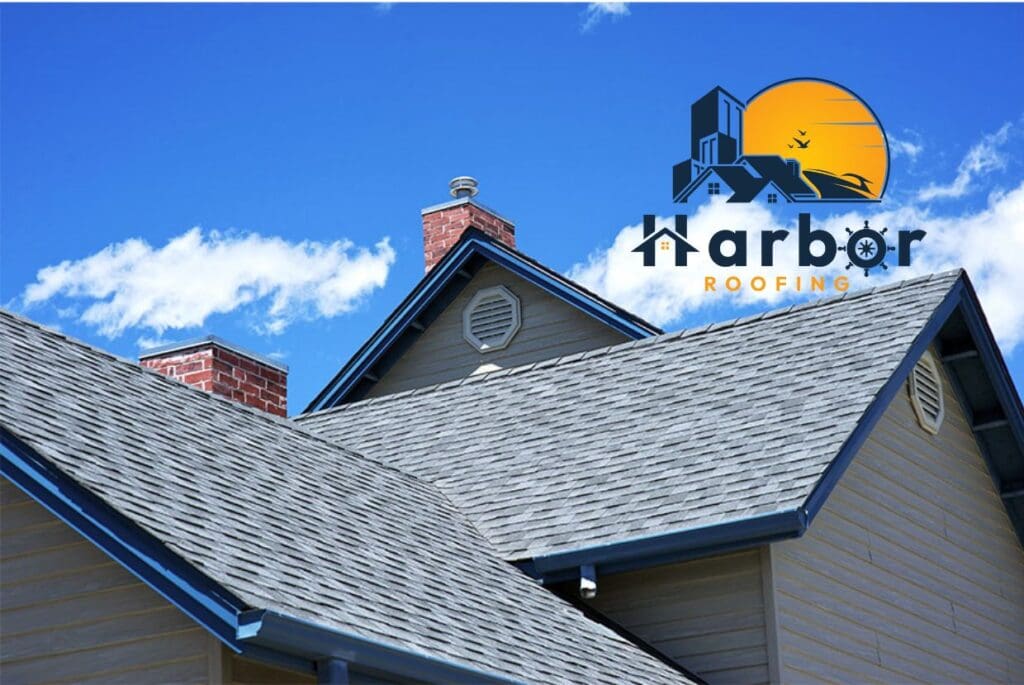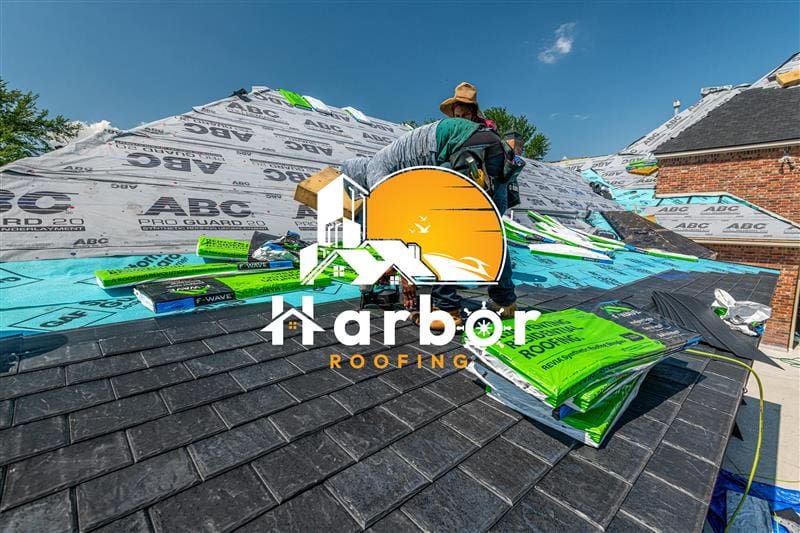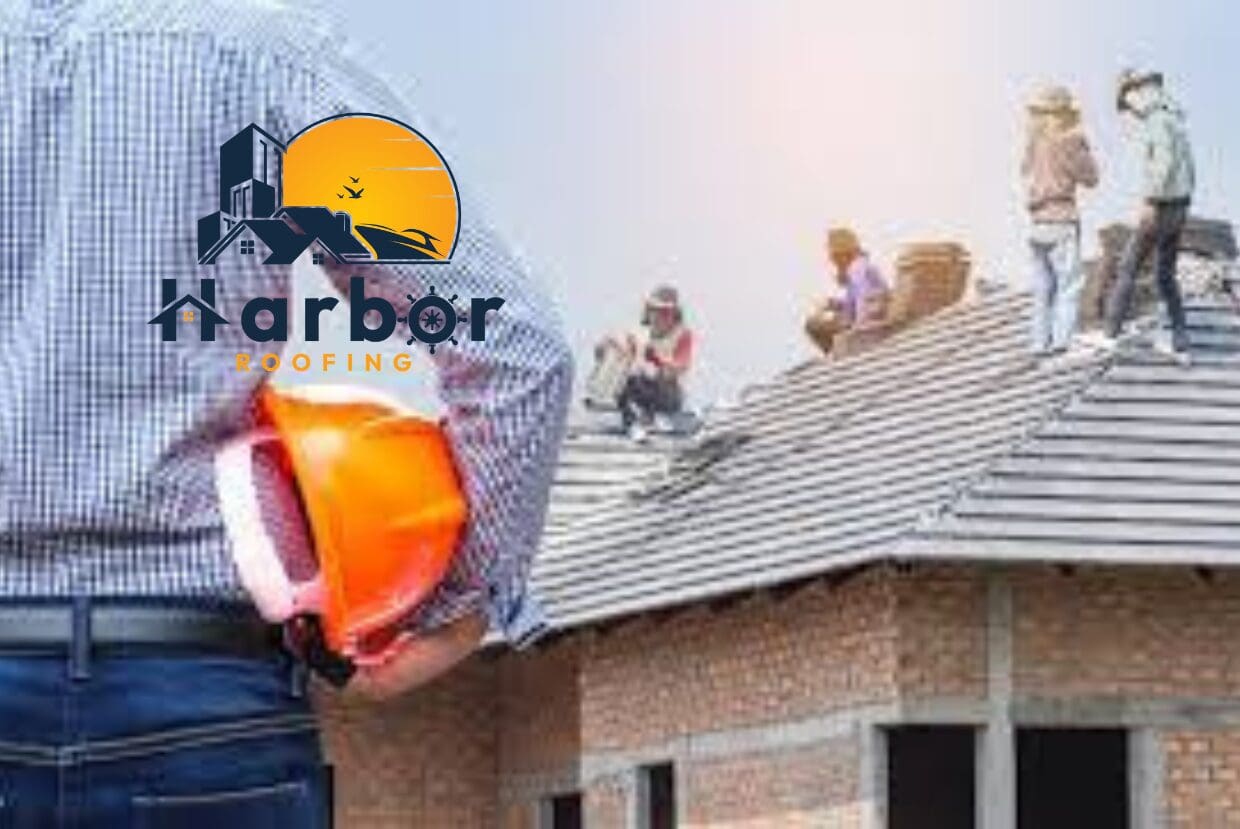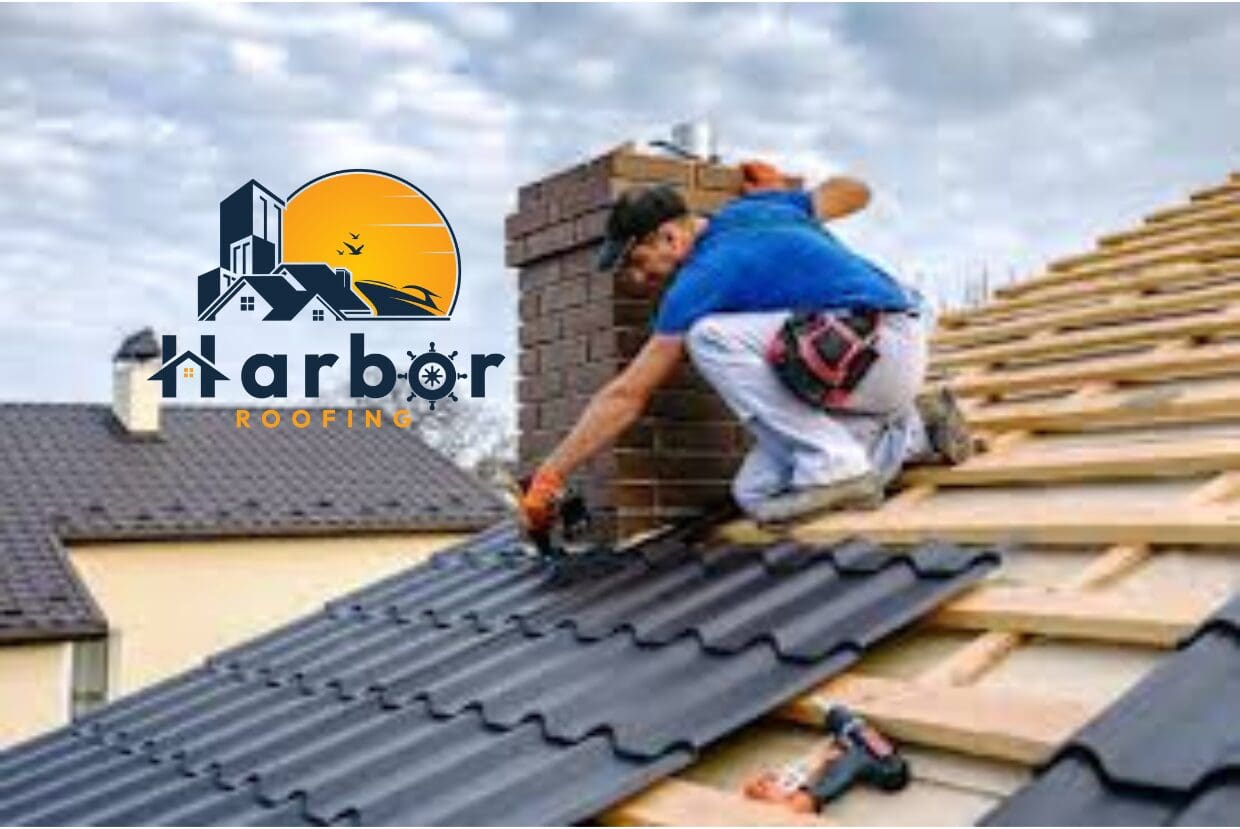Table of contents
- Key Takeaways (Checklist)
- 1.Failing to Verify Roofing Contractor Credentials
- 2. Overlooking Roofers’ Reputation and Reviews
- 3. Ignoring the Roofing Contract Details
- 4. Choosing Based on Price Alone
- 5. Neglecting Florida-Specific Roofing Requirements
- Bonus Tip: Underestimating the Importance of Communication
- Frequently Asked Questions
Hiring a roofing contractor in Florida can be tough – should you listen to recommendations from friends and family, choose the lowest bid, or find someone based off of online reviews?
Nearly every roofing job can cost you quite a bit of money so it’s important to avoid some common and some not so common mistakes.
If we were to list these, the most common mistakes would be failing to verify proper licensing, ignoring local building code requirements, and choosing residential or commerical roofing contractors based solely on the lowest price.
These mistakes can not only cost you money now but can cost you even more money down the line especially when considering Florida’s climate and hurricane season.
Get Your Free Quote From Us Today
Key Takeaways (Checklist)
• Always Verify the contractor’s active Florida state license and confirm insurance directly with the provider
• Ensure the roofer has proven local experience with hurricane-resistant installation and materials
• Review pricing patterns across at least 3 bids to identify missing scope or hidden future costs
• Confirm the contract includes exact materials, scope, dates, permits, and cleanup responsibilities
• Review downpayment and payment details (most roofers collect 50% deposit when pulling a permit right away while others may not require payment until job is complete – so be sure to confirm exact payment details)
• Understand that unlicensed or code-violating work can void homeowners insurance and lead to denied claims
• Check that warranties include written workmanship coverage, not just manufacturer material coverage
• Look for review patterns and how the contractor responds to customer complaints, not just star ratings
• Confirm who supervises the project, how often updates are provided, and plans for weather delays
1.Failing to Verify Roofing Contractor Credentials
Checking Licensing Requirements
The easiest mistake and not to mention potentially the most costly one is failing to verify the roofing contractors valid state license through the Florida Department of Business and Professional Regulation.
If you find a contractor who doesn’t have a license and who is willing to do cheap work it may seem like a quick win, but this can lead to a number of extremely expensive issues later on.
For example, we’ve seen too many customers who want something quick installed like a skylight on their roof who choose to use an unlicensed contractor only to have the roof become damaged in the process and then end up needing an entire roof replacement.
So licensed roofers must have:
- Active state certification
- Proof of required training
- Clean disciplinary record
Check that the license matches the exact business name on your contract. Some unlicensed contractors use similar names to confuse homeowners.
Local building codes also require permits for most roofing work. Your roofing company should handle permit applications and ensure all work meets Florida’s building standards.
You can search for local permitting by using a site like BuildZoom to confirm they pull permits properly and consistently work in your area.
The final takeaway is that unlicensed work violates state law and can void your homeowner’s insurance coverage if problems arise later.
Ensuring Adequate Insurance Coverage
Every legitimate roofing contractor needs two types of insurance protection. General liability insurance covers property damage to your home during the project.
Workers’ compensation insurance protects you from lawsuits if workers get injured on your property. This coverage is legally required for roofing companies with employees.
Request these documents:
- Current insurance certificates
- Policy coverage amounts
- Expiration dates
Call the insurance company directly to confirm the policy is active. Some contractors show expired or fake certificates to win contracts.
Uninsured roofers create serious financial risks for homeowners. If an uninsured worker gets hurt, your homeowner’s insurance might not cover medical bills or legal costs.
Assessing Roofing Contractor Experience
Experience matters when choosing roofers for Florida’s unique climate challenges. Look for contractors who regularly work in your area and understand local weather conditions.
Key experience indicators:
- Years in business locally
- Completed projects in your neighborhood
- Knowledge of Florida building codes
- Manufacturer certifications
When hiring a roofer you’ll want to check out some of the company’s recent work as well as recent references. We always recommend asking for a list of recent roof reapirs or replacements the contractor has completed so you can confirm work quality and talk to past customers.
Most experienced roofing companies are happy to share references and testimonials of people who have been completely satisfied with their services.
Platforms such as Google and the Better Business Bureau can also give you a good idea of a company’s work quality and professionalism, look for a pattern in the way customers talk about the company’s work.
It may be obvious but it’s best to avoid working with a roofer that cannot provide local references or that has a laundry list of negative reviews complaining about incomplete work and lack of communication.

2. Overlooking Roofers’ Reputation and Reviews
Investigating Local Reputation
Your neighbors, friends and local hardware stores are a wealth of knowledge. They’ll be able to tell you which companies do a good job and which ones don’t, when searching for a roofing contractor.
Check with your local Better Business Bureau to see if there are any complaints against the roofer, and look up their rating. Repeated problems can be a clear indicator of how a company operates.
Visit some recent job sites in your neighborhood, talk to the homeowners who’ve just had their roofs done, and ask them about their experience.
This is a good time to know how to expect from a particular company. Contractors who are local and understand the climate, humidity and hurricane requirements of your region are more suitable, and out-of-state companies tend to have problems.
Evaluating Online Feedback
Evaluating online reviews is all about spotting patterns in Google, Yelp and Angie’s List reviews, don’t get caught up in one or two negative comments.
Some tips for evaluating roofing companies online are to:
- Always look at their social media to confirm they are active and sharing current projects.
- Sort their reviews from lowest to highest to see how the roofer responds to problems and poor reviews.
- Check that reviews are recent and consistent, not just from years ago.
If the roofer responds to complaints with a clear, courteous explanation and an offer of a solution, good. They’re just dodging, ignoring criticism, rudimentary or nasty reactions aren’t any good sign of how much they care.
Red flags in reviews include:
- Multiple complaints about unfinished work
- Reports of damage to property
- Problems with billing or surprise charges
- Poor communication during the roofing project
Look for recent reviews from the past year. Older reviews may not reflect current quality or staff. A good roofing contractor should have steady positive feedback over time.
Requesting References
Ask any serious roofing company for at least three recent references. They should provide contact information without hesitation. Avoid roofers who cannot or will not share references.
Call these references and ask specific questions. Find out if the work was completed on time and within budget. Ask about the cleanup process and if they would hire the same roofer again.
Request to see photos of completed projects similar to yours. A quality roofer keeps records of their work and takes pride in showing results.
Get references from jobs completed within the past two years. This gives you current information about their work quality and business practices.
3. Ignoring the Roofing Contract Details
Understanding Contract Terms and Scope
Your roofing contract must clearly define what work will be done. The document should specify whether you need a complete roof replacement or partial repairs.
Look for exact details about materials. The contract should list brand names, colors, and quality grades. Avoid contracts that say “or equivalent” without your approval.
Key contract elements to verify:
- Start and completion dates
- Cleanup responsibilities
- Permit acquisition duties
- Weather delay procedures
The scope section protects you from surprise charges. Make sure it covers removal of old materials, disposal fees, and any structural repairs needed.
Some contractors try to add costs later. A detailed contract prevents this by listing all included services upfront.
Clarifying Payment Structures
Roofing contractors often request a 50 percent deposit especially if they begin the permitting process right away. Payment schedules can vary by company. Some roofers do not require any payment until the work is completed. Many others collect 50 percent when the contract is signed or when roofing materials are delivered to the job site.
It’s good to be clear on payment structures and avoid contractors who demand full payment before starting. This is a major red flag for potential scams.
Your contract should also specify payment methods. Check if the contractor accepts credit cards, which offer consumer protection.
Include penalties for project delays caused by the contractor. This motivates timely completion and gives you recourse for inconvenience.
Material cost changes should require written approval. The contract should state how price increases will be handled.
Checking Written Warranties
A workmanship warranty protects you from installation errors. Most reputable contractors offer 2-10 years of coverage on their work.
Two types of warranties matter:
- Manufacturer warranty – covers material defects
- Workmanship warranty – covers installation problems
Read warranty terms carefully. Some only cover specific issues or require annual inspections to stay valid.
The contract should clearly state warranty length and what triggers coverage. Vague language often means weak protection.
Get warranty details in writing before signing. Verbal promises mean nothing if problems arise later.
Check if the warranty transfers to new owners. This adds value if you sell your home.
Understand your responsibilities too. Some warranties require regular maintenance or specific cleaning products.

4. Choosing Based on Price Alone
Risks of the Lowest Bid
Contractors offering extremely low prices typically reduce costs in ways that hurt your project. They may use inexperienced workers who lack proper training.
These workers might install roofing materials incorrectly. Poor installation can cause leaks within months of completion.
Some low-bid contractors don’t carry proper insurance. If a worker gets injured on your property, you could face legal costs.
Common risks include:
- Improper installation techniques
- Uninsured workers
- Rushed timelines
- Poor workmanship
- Code violations
Cheap contractors often disappear after completing work. You won’t be able to reach them when problems arise.
They may also lack proper licensing in Florida. Working with unlicensed contractors puts your home insurance coverage at risk.
Hidden Costs and Inferior Materials
Low bids rarely include everything needed for quality roof repair work. Contractors add extra charges after starting your project.
These “change orders” can double your final cost. You’ll pay more than higher initial quotes from honest contractors.
Hidden costs often include:
- Permit fees
- Cleanup services
- Additional materials
- Structural repairs
- Disposal fees
Cheap roofing materials fail faster than quality options. Your new roof may need repairs within 2-3 years.
Inferior shingles crack easily in Florida’s heat and storms. Poor underlayment allows water damage during heavy rains.
You’ll spend more money fixing these problems than hiring quality contractors initially. Quality roofing materials last 15-25 years with proper installation.
Low-grade materials also void manufacturer warranties. You lose protection if defects cause roof damage.
5. Neglecting Florida-Specific Roofing Requirements
Considering Weather Damage Risks
Florida’s weather puts extreme stress on roofs year-round. Your roof must handle hurricane winds up to 150 mph, torrential rains, and intense UV rays.
Many homeowners hire roofers who don’t understand these challenges. They use standard materials that work in other states but fail quickly in Florida’s harsh conditions.
Hurricane-resistant features your roofer should know:
- Wind uplift ratings for shingles and tiles
- Proper fastening patterns for high winds
- Impact-resistant materials for hail protection
- Sealed roof decking to prevent water intrusion
Salt air near the coast creates additional problems. Metal components rust faster. Some materials break down quickly from constant moisture and heat.
Your contractor should recommend materials designed for Florida’s climate. They should also know proper installation techniques to prevent wind damage and water leaks during storms.
Complying with Local Building Codes
Florida has some of the strictest building codes in the country. These rules protect homes from hurricane damage and ensure proper installation methods.
Licensed roofers must follow the Florida Building Code. This includes specific requirements for:
Key code requirements:
- Minimum wind resistance ratings by region
- Proper ventilation systems
- Flashing installation around penetrations
- Fastener types and spacing patterns
Unlicensed contractors often ignore these rules. They may use cheaper materials or shortcuts that violate code standards.
Code violations can cause serious problems later. Your insurance company might deny storm damage claims if your roof doesn’t meet requirements. You may also face fines or have to redo work completely.
Always verify your contractor knows local codes for your specific area. Different counties may have additional requirements based on their hurricane risk zones.
Bonus Tip: Underestimating the Importance of Communication
Setting Clear Expectations
Good communication starts before work begins on your roofing project. You need to discuss every detail with potential roofing contractors during the initial meetings.
Key areas to discuss include:
- Project timeline and start date
- Daily work hours and crew size
- Material delivery schedules
- Clean-up procedures
Ask roofers how they handle weather delays. Florida’s unpredictable storms can pause work for days. Your contractor should explain their backup plans and revised schedules.
Discuss payment schedules upfront. Avoid contractors who demand large payments before starting work. Most reputable roofing contractors request payment in stages tied to completed milestones.
Get all agreements in writing. Verbal promises often get forgotten or misunderstood during busy projects.
Confirming Project Management and Supervision
Find out who will supervise your roofing project daily. Many roofing contractors use different crews for different jobs. You need to know your main contact person.
Ask for the supervisor’s phone number and preferred communication method. Some prefer text messages while others use phone calls for updates.
Essential supervision questions:
- Who inspects completed work?
- How often will you receive progress updates?
- What happens if problems arise?
Request photo updates if you work during the day. Many homeowners cannot monitor progress in person. Quality roofers often send pictures showing completed sections and any issues they discover.
Establish emergency contact procedures. If severe weather threatens or accidents happen, you need immediate notification. Your roofing contractors should have clear protocols for urgent situations.
Frequently Asked Questions
What should homeowners look for in a reputable roofing contractor’s credentials in Florida?
Florida requires roofing contractors to have a state license through the Department of Business and Professional Regulation. You should ask for their license number and verify it online through the state database.
Check that their license is current and not expired. Look for any complaints or violations listed on their record.
Your contractor also needs general liability insurance and workers’ compensation coverage. Ask to see current insurance certificates directly from their insurance company.
Bonding provides extra protection for your project. A bonded contractor shows they meet financial requirements and can complete your job properly.
How can Florida homeowners avoid overpaying for roofing services?
Get at least three written estimates from different contractors. Compare the materials, labor costs, and timeline for each bid.
Be cautious of prices that seem too low or too high compared to other quotes. Very low bids often mean cheap materials or poor workmanship.
Understand clearly what work is included in each estimate. Some contractors may leave out important steps like permits or cleanup costs.
What are the common misconceptions about roofing warranties that Florida residents should be aware of?
Many homeowners think all roofing warranties are the same. Material warranties cover defects in shingles or tiles but not installation problems.
Workmanship warranties protect against installation errors. These come from your contractor, not the material manufacturer.
Transferable warranties can add value if you sell your home. Not all warranties transfer to new owners automatically.
Weather damage is typically not covered by standard roofing warranties. You need homeowners insurance for storm damage claims.
Why is it important for homeowners to understand the specifics of roofing contracts in Florida?
Florida law requires roofing contracts to include specific information like start dates, materials used, and total costs. Missing details can cause problems later.
Your contract should list permit requirements and who handles the application process. Many Florida counties require permits for roof replacement.
Payment schedules protect both you and the contractor. Never pay large amounts upfront before work begins.
Cleanup and disposal terms should be clearly stated. Some contractors charge extra fees for removing old roofing materials.
How can individuals ensure they are not violating any Florida building codes when hiring a roofer?
Hire only licensed contractors who know current Florida building codes. They understand wind resistance requirements and proper installation methods.
Verify that your contractor will obtain necessary permits before starting work. Permits ensure inspections happen at required stages.
Florida has specific requirements for hurricane straps and wind-resistant materials. Your contractor should explain these requirements for your area.
Some homeowners associations have additional rules about roofing materials and colors. Check these requirements before signing contracts.
What are the risks of hiring an uninsured or unlicensed roofer in Florida?
You become liable for injuries if workers get hurt on your property without proper insurance. This can result in expensive medical bills and lawsuits.
Unlicensed contractors may not know Florida building codes or safety requirements. Poor installation can lead to leaks and structural damage.
You have limited legal options if problems occur with unlicensed contractors. Licensed contractors must follow state regulations and complaint processes.
Insurance claims may be denied if unlicensed contractors do the work. Your homeowners insurance requires proper permits and licensed installation.



